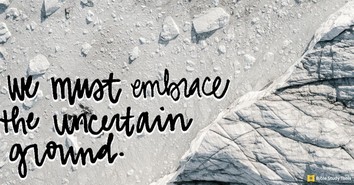How to Handle Credit Cards: Paying Bills & Credit Scores

"Dear Deborah,
I have several credit cards with high balances. I’d really like to get rid of my credit card bills. What’s the best way to do this?" – Suzanne
With higher interest rates and never-ending fees, credit cards are keeping Americans from getting ahead financially. This is an important goal.
I would recommend the following:
1. First of all, make a smart decision to stop using your credit cards on a consistent basis. Other than using them when they provide a benefit (for emergency use, for travel reservations, overseas travel, etc.) it’s important to keep the usage to a minimum.
2. Then list your credit cards by balance amounts, starting with the highest to the lowest. Begin by tackling the credit cards with the lowest balances. Pay more than the monthly minimum payment, paying it off as quickly as you’re able to. Try to pay $100 or $200 extra each month, or as much as is possible toward the balance.
3. When the first card is paid off completely, continue with your plan to pay off the credit card with the next highest balance. As each credit card is paid off, apply what would have been the cards’ minimum balances to the next card, until all the cards are completely paid off.
By starting with the cards with the lowest balances, you’ll have a greater sense of accomplishment each time the credit card is paid off, and it will be more motivating to continue on to the next one. I’ve seen this system work well for many families.
Have a little celebration every time you pay off a credit card. And imagine the day you’ll have them all paid off!
Here are some tips to help you avoid using more credit than you can afford:
- Use only one credit card. Multiple credit cards shouldn’t be needed if money is managed well.
- Only use the credit card when it is necessary. It is a convenience. If you can pay with cash, debit card, or check, do so.
- Avoid consolidating your credit card debt if you’ll probably run up more debt.
- Do not apply for more credit cards. Applying for many cards can affect your credit rating negatively, since whenever you apply for a credit card this is recorded in your credit history.
- Be aware of offers to open an account with department and larger specialty stores for a one-time only discount (usually 10%). These cards have interest rates that are usually high – sometimes up to 15 percent.
"Dear Deborah,
What information is in my credit report? Does my score really matter?" – Kara
Your credit report contains:
1. Personal Information: Your name, previous and present addresses, Social Security number, past and current employer(s) and your spouse’s name may be listed.
2. Credit Accounts: This includes the types of loans you’ve taken out (such as credit cards, car loans, or mortgages) and the current balance, and whether payments have been made on time. Accounts turned over for collection may be listed.
3. Public Record Information: This includes tax liens, bankruptcy, money judgments, and in some states, delinquent child support payments.
4. Inquiries: This lists the lenders, employers or other companies that have reviewed your report in the previous two years. (Source: Financial Literacy Center)
Most lenders refer to an elaborate scoring system compiled by Fair Isaac Corporation. FICO scores range from 300 to 850, with scores above 700 considered more acceptable.
Your credit score does matter. Whenever you ask for credit, the lender acquires your payment history. Higher credit scores can mean you pay a lower rate for loans and insurance. Also, be aware that many credit card companies will increase your interest rate if payments are late with another creditor.
For a credit report from the major credit bureaus, go to annualcreditreport.com or call 877-322-8228.
Copyright 2014. All rights reserved. Permission to reprint required.
Deborah Nayrocker writes on personal money management topics, showing others how to take control of their financial future. She is the award-winning author of The Art of Debt-Free Living – Living Large on Less Than You Earn and Living a Balanced Financial Life.
Publication date: June 4, 2014
Originally published June 04, 2014.





